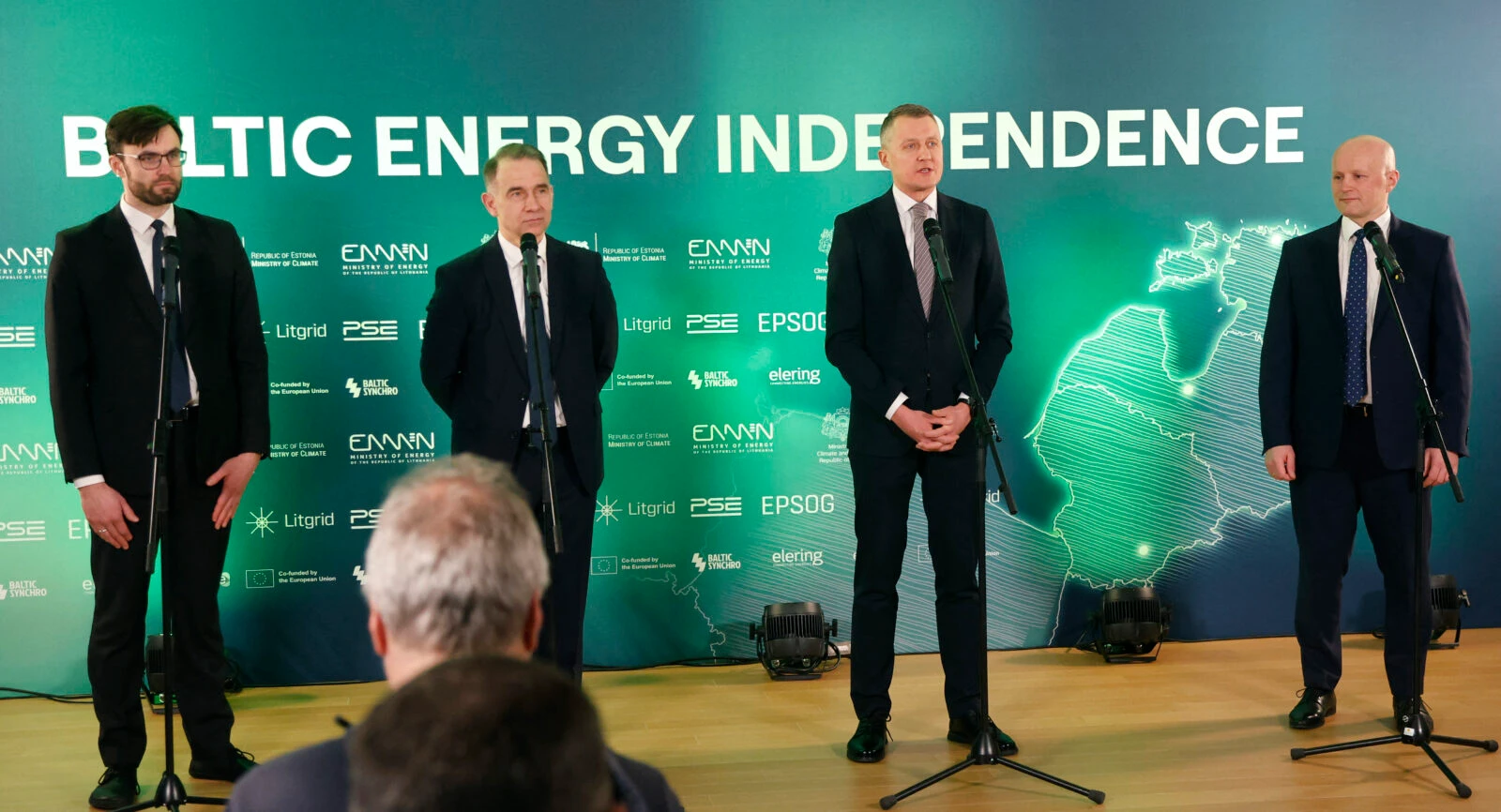Baltic states cut final power ties with Russia in historic shift
 A background reading "Baltic Energy Independance" is pictured ahead a press conference on the disconnection of the Baltic States from the IPS / UPS electricity grid system in Vilnius, Lithuania, on February 8, 2025. (AFP Photo)
A background reading "Baltic Energy Independance" is pictured ahead a press conference on the disconnection of the Baltic States from the IPS / UPS electricity grid system in Vilnius, Lithuania, on February 8, 2025. (AFP Photo)
In a watershed moment for European energy independence, Estonia, Latvia and Lithuania permanently disconnected from Russia’s power grid on Saturday, marking the final break from Soviet-era infrastructure that had kept the Baltic nations tethered to Moscow’s sphere of influence.
The synchronization with the European Union’s power network, completed at 9:09 a.m. local time, represents a €1.6 billion ($1.7 billion) investment in regional energy security and follows years of careful technical preparation.
“The energy system of the Baltic states is finally in our own hands. We are in control,” Lithuania’s Energy Minister Zygimantas Vaiciunas told Agence-France Presse (AFP), characterizing the transition as a “historic” achievement.
The switch comes amid heightened regional tensions following Russia’s invasion of Ukraine, which spurred the Baltic states to accelerate their energy independence initiatives.
While the three NATO and EU members had already ceased purchasing Russian gas and electricity, their power grids remained under Moscow’s operational control until today.
Security high as Baltic states enter critical 24-hour test phase
During the 24-hour transition period, the Baltic power systems will operate in “isolated mode” to demonstrate stability before fully integrating with the European grid through Poland.
Authorities have implemented extraordinary security measures, including drone and helicopter surveillance of critical infrastructure, amid concerns about potential cyber-attacks or sabotage attempts.

The disconnection also affects Russia’s Kaliningrad enclave, which will lose its direct power link to mainland Russia. However, Kremlin spokesman Dmitry Peskov dismissed concerns, stating that Moscow has “taken all measures to ensure the uninterrupted reliable operation of our unified energy system.”
For ordinary citizens, the historic transition should be seamless. “People won’t feel it, either in terms of their bills or any inconvenience,” Lithuanian President Gitanas Nauseda assured the public, though some Estonian consumers have reportedly stocked up on generators as a precaution.
European Commission President Ursula von der Leyen is scheduled to attend a ceremonial event in Vilnius on Sunday to mark the successful completion of the synchronization process, underscoring the EU’s commitment to energy security in its eastern member states.



